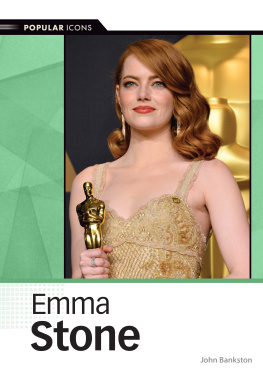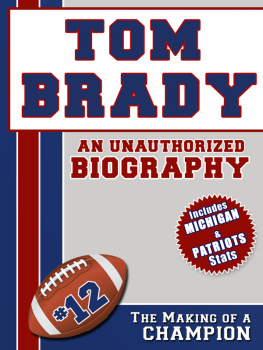John Brady - A stone of the heart
Here you can read online John Brady - A stone of the heart full text of the book (entire story) in english for free. Download pdf and epub, get meaning, cover and reviews about this ebook. genre: Detective and thriller. Description of the work, (preface) as well as reviews are available. Best literature library LitArk.com created for fans of good reading and offers a wide selection of genres:
Romance novel
Science fiction
Adventure
Detective
Science
History
Home and family
Prose
Art
Politics
Computer
Non-fiction
Religion
Business
Children
Humor
Choose a favorite category and find really read worthwhile books. Enjoy immersion in the world of imagination, feel the emotions of the characters or learn something new for yourself, make an fascinating discovery.

- Book:A stone of the heart
- Author:
- Genre:
- Rating:5 / 5
- Favourites:Add to favourites
- Your mark:
- 100
- 1
- 2
- 3
- 4
- 5
A stone of the heart: summary, description and annotation
We offer to read an annotation, description, summary or preface (depends on what the author of the book "A stone of the heart" wrote himself). If you haven't found the necessary information about the book — write in the comments, we will try to find it.
A stone of the heart — read online for free the complete book (whole text) full work
Below is the text of the book, divided by pages. System saving the place of the last page read, allows you to conveniently read the book "A stone of the heart" online for free, without having to search again every time where you left off. Put a bookmark, and you can go to the page where you finished reading at any time.
Font size:
Interval:
Bookmark:
John Brady
A stone of the heart
CHAPTER ONE
Too long a sacrifice can make a stone of the heart
WB Yeats, "Easter 1916"Mary Brosnahan alighted from the train at Pearse Street station. Although she was going to be late for Miss Black-she could see Miss Black's tight little mouth saying 'nine sharp'-Mary was not one for running. Her only sister, Francie, had had a stroke three years ago and Francie was only fifty-three, three years younger than Mary.
Mary pressed into the Friday morning crowd which was flowing toward the top of the stairs. Behind her, the station began to vibrate and thunder with the starting train's efforts to push itself on to the south suburbs of Dublin. Mary had known these same trains for thirty years. Like most other Dubliners starting into the 1980s in their greying city, Mary had insulated herself with a benign cynicism. No matter what they said, the new electric trains were a pipe dream concocted to catch votes. Never happen, not in a million years.
While Mary was on the train she had caught sight of the headline on the Independent. Now it appeared to her again in the stacks of papers by the foot of the stairs: "Kidnapped RUC man found dead." Another one, she thought.
Mary's attention was then taken up with negotiating the murderous traffic in Pearse Street. She pressed the button for the pedestrian light and waited. Momentarily, she recalled the headline again and the photograph of something (clothes? a sack?) lying in a ditch, with policemen and soldiers standing around. As the light changed, she scurried through the crowd and made her way toward the back gate of Trinity College.
Mary worked as a skip in the college. Her job was to house-clean the students' rooms and other residences. She had been doing this for fifteen years. She entered the grounds and immediately headed for the passageway between the gymnasium and the science blocks. A bicycle hummed by slowly with its chain rattling. Again Mary recalled the photograph in the Independent. This time, she summoned up the memory of the daily glimpses of the Dublin mountains she caught as her train crossed the Liffey by the Custom House. Mary seized on this recollection to quell the feather touch of anxiety she felt coming over her.
She emerged from the passageway to face the broad playing fields lined with trees. Mary did not miss the propriety of the flowers and shrubs held in by the tended beds which followed alongside the path. There was care taken here and things were kept in order-at least that could be said for the place, no matter the likes of Miss Black who ran it. Outside the walls, Dublin had gone to pot in Mary's estimation. Where was the polite and decent city she had grown up in? You'd be run over by cars and you on the footpath even, she had concluded. The clerks in the shops didn't so much as look at you these days. People eating in restaurants and houses being knocked down for shops and offices.
"It's them Johnny-Jump-Ups from outside of Dublin has the place gone to hell. What do you call them, the entrepreneurs and the like. Hucksters and bogmen. They take the money and run," Mick said.
The thing was, it was happening all over the world. Like Father
O'Brien said in the pulpit, things were changing too quickly. We didn't have our priorities right, he said. That's it, Mary thought, we don't have our house in order, we don't have our priorities right.
Mary quickened her pace. She consoled herself that at least it was Friday. Miss Black and her 'nine sharp.' Little dry old Protestant face on her, Mary thought scornfully. What was it one of the other skips said she'd like to ask her? 'O Miss Black, how's your arse for cracking walnuts?'
Mary imagined the house they'd buy after they retired. It'd be out in Portmarnock with a bit of sea air, near the amenities. A bungalow with a garden for Mick, someplace a person wouldn't be beat up or burgled or run over by traffic. At least it wasn't like up the North, with men shot dead at their doors in front of their families, she thought.
Mary's eye was caught by the sight of a piece of white plastic bag lying in the clump of bushes. Late as she was, Mary was affronted by this. She looked around at the groups of students who passed. None of these youngsters would bother to pick it up of course. Exasperated, Mary stopped and sought a way into the clump which would allow her to get at the bag without getting up to her ankles in muck. She became even more irritated.
Mary walked around the back of the bushes and bent to get into the bag. Bent over, she poked at it with her umbrella, pinning it to the earth. Then she tried to flick it back toward her. She couldn't. The bag was full of something. Mary became angry. She inched in further and looked down at it. It was full of bits of paper. It had to have been some student blind drunk last night who had thrown his notes away. Probably one of them engineers, she surmised, dealing out justice to the anonymous culprit.
Mary picked up the bag. She noticed the sleeve of a coat some six feet away. She hadn't seen it from where she had stood before. She looked at the shrubs nearby. Some of the stalks and branches were showing spots of white where they had been broken. There must have been drink taken last night, she decided. Mary made her way over, her anger now tempered by anxiety and the embarrassment at being in the middle of a bed of shrubs, late for work.
A group of Modern Language students had stepped out of the library to have a smoke and a sit-down in the chairs facing College Park. One of them was ridiculing a psychoanalytic reading of the character of Hamlet when a scream came across the air from behind them. Then another scream.
As they turned, Mary came thrashing out of the bushes with her mouth open and her hat snagged on a bush behind her. She tripped and fell over a waist-high red-leafed bush. Her forearms beat into the ground to save her fall. She scrambled to get up, sliding in the clay again. Mary Brosnahan was quite unconcerned about being late for Miss Black, moving to Portmarnock or fretting about Dublin's lost civic pride. Her chief concern was to get away from that clump of bushes and shrubs, where her pattern of day-to-day life had been wrecked completely for some time to come by finding the corpse with its head bashed in.
That Friday afternoon saw Inspector James Kilmartin, offices in Dublin Castle, in the company of Garda Tom Connors, of Kevin Street Garda Station but seconded for training to the Murder Squad, sitting in a navy blue unmarked Garda car.
Kilmartin and Connors had just stepped out of the side gate of Trinity College. Kilmartin had listened to Mulholland and then Lacey from Garda Forensic while Connors stood with his hands pocketed, his hair tossing almost in rhythm with the flapping ends of the plastic cordon pegged around the site. The two detectives from Forensic took turns pointing to spots in the bushes. Three other men crouched in the bushes as they talked. Kilmartin watched the three as they inched their ways from spot to spot on their hunkers. He considered that they would make reasonable gardeners but that they'd need something better than tweezers and plastic bags.
"No, sir. No sign of whatever gave him the clout," Lacey had said.
"Nothing like a little hatchet or that class of thing?" Kilmartin murmured.
"Divil a bit, sir. He was brought over here all the same. We might do better now when we find out where he was done in."
"Dragged, is it?" Kilmartin asked.
"Carried would probably be it, sir. He's a hefty lad so"
"Did ye take any casts, then?"
"We took two, sir. They were women's shoes."
Kilmartin looked over at Connors and then beyond him to the pallid sky above the Georgian parapets of the college buildings. Connors was staring at the three policemen in the bushes. They reminded him of fowl on the lookout for grains in a farmyard.
Font size:
Interval:
Bookmark:
Similar books «A stone of the heart»
Look at similar books to A stone of the heart. We have selected literature similar in name and meaning in the hope of providing readers with more options to find new, interesting, not yet read works.
Discussion, reviews of the book A stone of the heart and just readers' own opinions. Leave your comments, write what you think about the work, its meaning or the main characters. Specify what exactly you liked and what you didn't like, and why you think so.


